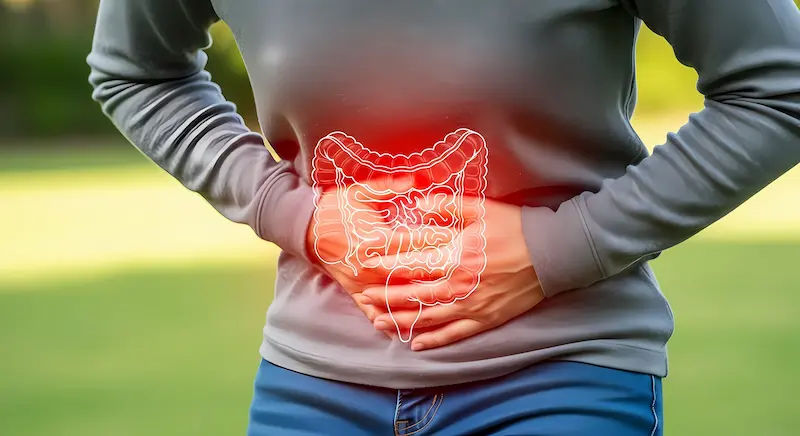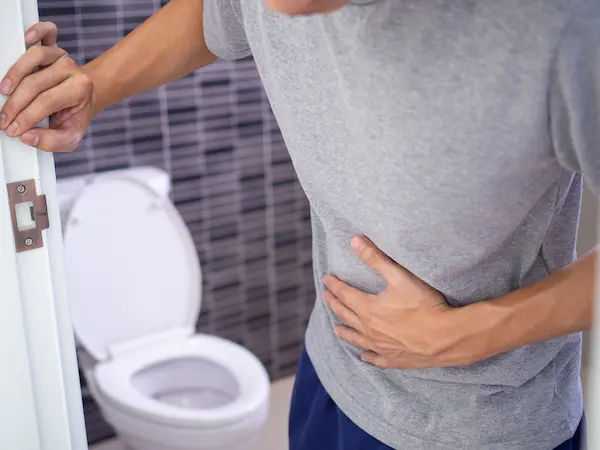Constipation Awareness Month: Tips, Myths and Relief Guide
Learn about constipation, common myths, and effective relief strategies this Constipation Awareness Month. Get practical tips to maintain healthy digestion.


Introduction
December is more than just a festive season; it's also Constipation Awareness Month, a crucial time dedicated to breaking the silence around a common yet often stigmatized digestive issue. Millions experience constipation, but many suffer in silence due to embarrassment. This awareness month aims to change that by fostering open conversations, dispelling myths, and empowering individuals with practical knowledge for better gut health. Constipation isn't just about infrequent bathroom trips; it can significantly impact your quality of life, causing bloating, discomfort, and fatigue. This comprehensive guide will walk you through everything you need to know, from understanding the root causes of constipation to effective dietary fixes and knowing when it's time to seek professional help. Let's normalise the conversation and find the relief you deserve.
What is Constipation Awareness Month?
Constipation Awareness Month, observed every December, is a global health campaign designed to educate the public about the causes, symptoms, and treatments of constipation. It’s initiated by health organizations and gastrointestinal experts to reduce the stigma associated with this condition and encourage people to seek help without shame.
The History and Purpose Behind the Awareness Campaign
While a single origin point is hard to pinpoint, this awareness month has gained momentum over the past decade as digestive health has become a more prominent topic in public discourse. The purpose is threefold: to educate the public on prevention and management, to advocate for better patient care and understanding, and to support those who are affected by chronic digestive issues. It’s a call to action for everyone to prioritize their gastrointestinal health.
Why Talking About Gut Health Matters
The gut is often called the "second brain" for a reason. Its health is intricately linked to our immune system, mental well-being, and overall vitality. Openly discussing conditions like constipation helps normalise them, making it easier for individuals to consult a doctor, leading to earlier intervention and better outcomes. Silence can lead to unnecessary suffering and the potential worsening of underlying conditions.
Consult a General Physician for the best advice
Understanding Constipation: More Than Just Discomfort
Constipation is clinically defined as having fewer than three bowel movements per week. However, it also encompasses symptoms like straining, passing hard lumpy stools, or feeling of incomplete evacuation.
Common Causes of Constipation
The triggers are often lifestyle-related but can be medical:
- Dietary Factors: Low intake of high fibre foods and inadequate hydration are the top culprits.
- Lack of Exercise: A sedentary lifestyle can slow down the digestive system.
- Medications: Certain painkillers (especially opioids), antidepressants, and iron supplements can cause it.
- Ignoring the Urge: Regularly postponing a bowel movement can weaken signals over time.
- Medical Conditions: Irritable Bowel Syndrome (IBS), hypothyroidism, diabetes, and neurological disorders like Parkinson's disease.
Recognizing the Symptoms: When Should You Be Concerned?
Beyond infrequency, key symptoms include:
- Straining during bowel movements
- Lumpy or hard stools
- Feeling of a blockage
- Needing to manually help empty the rectum
- Abdominal bloating and discomfort
You should pay closer attention if these symptoms persist for more than two weeks or severely impact your life.
Top Dietary Strategies for Constipation Relief
Diet is your first and most powerful line of defense against constipation.
The Power of Fibre: Soluble vs. Insoluble
Fibre adds bulk and softens stool, making it easier to pass. There are two types:
- Soluble Fibre: Dissolves in water to form a gel-like material. It helps soften stool. Sources: Oats, peas, beans, apples, citrus fruits, carrots.
- Insoluble Fibre: Promotes the movement of material through your digestive system. Sources: Whole-wheat flour, wheat bran, nuts, beans, cauliflower, green beans.
Aim for a mix of both, with a total recommended intake of 25-30 grams per day.
Hydration: Why Water is Your Best Friend
Fibre without water can actually worsen constipation. Fluids help dissolve soluble fibre and keep the digestive process smooth. Aim for at least 8 glasses of water a day. Herbal teas and broths also contribute to your fluid intake.
The Role of Probiotics and Prebiotics
- Probiotics (beneficial bacteria) and prebiotics (food for these bacteria) can help regulate gut health.
- Probiotics: Found in yogurt with live cultures, kefir, kimchi, sauerkraut, and kombucha.
- Prebiotics: Found in garlic, onions, bananas, and asparagus.
- Incorporating these can be one of the most effective natural remedies for chronic constipation linked to gut bacteria imbalance.
Lifestyle Changes to Get Things Moving
Discover lifestyle changes to get things moving and promote regular bowel habits for better gut health.
The Link Between Exercise and Bowel Movements
Physical activity increases muscle activity in your intestines, helping to move stool through more efficiently. You don't need to run a marathon; a daily 30-minute brisk walk, swimming, or yoga can make a significant difference. This is one of the best lifestyle changes for constipation you can make.
Establishing a Healthy Bathroom Routine
Listen to your body's natural signals. Try to go to the bathroom at the same time each day, ideally after a meal (as eating stimulates the digestive reflex). Allow yourself time without rushing, and ensure your posture is optimal (some find using a small footstool to elevate their knees helpful).
Debunking Common Constipation Myths
Clearing up confusion about digestive health is key. Debunking common constipation myths helps you make informed choices for better bowel health.
- Myth 1: You must have a bowel movement every day.
- Truth: "Normal" ranges from three times a day to three times a week.
- Myth 2: Coffee is a reliable cure.
- Truth: While caffeine can stimulate bowel movements in some, it's a diuretic and can lead to dehydration, potentially making things worse.
- Myth 3: Long-term use of laxatives is safe.
- Truth: Overuse can lead to dependency and damage the colon's natural ability to contract. They should be a short-term solution, not a long-term strategy.
When Home Remedies Aren't Enough: Seeking Medical Help
If dietary and lifestyle changes for constipation don't provide relief after a few weeks, it's time to consult a professional.
Red-Flag Symptoms You Should Never Ignore
Seek immediate medical attention if you experience:
- Blood in your stool
- Unexplained weight loss
- Severe abdominal pain
- Constipation that is a new and persistent problem for you
- Vomiting
If your condition does not improve after trying these methods, consult a doctor for a comprehensive evaluation. Persistent symptoms of severe constipation could indicate an underlying condition that needs diagnosis.
Diagnostic Tests and Treatment Options
A doctor may discuss your history and recommend tests like blood tests to rule out hormonal issues, or a colonoscopy to check for blockages or abnormalities. Apollo24|7 offers convenient home collection for tests like thyroid function or CBC, which can be part of the initial diagnostic process. Treatments can range from prescription laxatives to biofeedback therapy.
Get Your Health Assessed
Constipation in Specific Populations
Constipation can affect anyone, but certain groups are more vulnerable. Learn about constipation in specific populations and how to manage it effectively.
During Pregnancy
Hormonal changes and pressure from the growing uterus commonly cause constipation. Safe strategies include increasing fibre and water intake with a doctor's guidance.
In Older Adults
Age-related factors like slower metabolism, medication use, and reduced mobility increase risk. Focus on fibre-rich purees if chewing is an issue, and stay active.
In Children
Often related to diet and a fear of using the toilet. Encourage fruits, vegetables, and plenty of fluids in a positive, stress-free manner.
Conclusion: Empowering Yourself Through Awareness
Constipation Awareness Month serves as a vital reminder that our digestive health is a critical component of our overall well-being. By understanding the causes of constipation, implementing proactive dietary and lifestyle strategies, and knowing when to seek help, you can take control of your gut health. Remember, experiencing constipation is common, but suffering in silence is unnecessary. Use this knowledge not just in December, but all year round, to foster a healthier, more comfortable life. If you've been struggling, let this be the month you decide to take the first step toward lasting relief. For personalised advice, consider consulting a healthcare professional to create a plan that's right for you.
Consult a General Physician for the best advice
Consult a General Physician for the best advice

Dr. Rajib Ghose
General Physician/ Internal Medicine Specialist
25 Years • MBBS
East Midnapore
VIVEKANANDA SEBA SADAN, East Midnapore

Dr. Ajay K Sinha
General Physician/ Internal Medicine Specialist
30 Years • MD, Internal Medicine
Delhi
Apollo Hospitals Indraprastha, Delhi
(200+ Patients)

Dr. Tamal Bhattacharyya
Pulmonology Respiratory Medicine Specialist
8 Years • MBBS, MD (Respiratory Medicine)
Kolkata
MCR SUPER SPECIALITY POLY CLINIC & PATHOLOGY, Kolkata

Dr. Swagato Podder
General Practitioner
5 Years • MBBS
Kolkata
GRD POLYCLINIC, Kolkata

Dr. Harshendra Jaiswal
General Physician/ Internal Medicine Specialist
12 Years • MBBS , MD (General medicine)
Kolkata
108 DHANA DHANVANTARI Clinic, Kolkata
(25+ Patients)
Consult a General Physician for the best advice

Dr. Rajib Ghose
General Physician/ Internal Medicine Specialist
25 Years • MBBS
East Midnapore
VIVEKANANDA SEBA SADAN, East Midnapore

Dr. Ajay K Sinha
General Physician/ Internal Medicine Specialist
30 Years • MD, Internal Medicine
Delhi
Apollo Hospitals Indraprastha, Delhi
(200+ Patients)

Dr. Tamal Bhattacharyya
Pulmonology Respiratory Medicine Specialist
8 Years • MBBS, MD (Respiratory Medicine)
Kolkata
MCR SUPER SPECIALITY POLY CLINIC & PATHOLOGY, Kolkata

Dr. Swagato Podder
General Practitioner
5 Years • MBBS
Kolkata
GRD POLYCLINIC, Kolkata

Dr. Harshendra Jaiswal
General Physician/ Internal Medicine Specialist
12 Years • MBBS , MD (General medicine)
Kolkata
108 DHANA DHANVANTARI Clinic, Kolkata
(25+ Patients)
More articles from Constipation
Frequently Asked Questions
What are the fastest home remedies for constipation?
Increasing water intake, having a cup of prune juice or warm lemon water, and eating high-fibre fruits like kiwis or pears can offer relatively quick relief for mild cases.
How long is it normal to be constipated?
Occasional constipation lasting a few days is common. If it persists for more than three weeks, or is accompanied by pain or bleeding, it's considered chronic and you should consult a doctor online with Apollo24|7 for further evaluation.
Can stress cause constipation?
Absolutely. The gut-brain connection is powerful. High stress can disrupt digestive rhythms, leading to either constipation or diarrhea.
Are there any effective natural supplements?
Psyllium husk (a fibre supplement), magnesium citrate, and ground flaxseeds are popular and effective natural options. Always start with a low dose and drink plenty of water.
What is the difference between constipation and IBS with constipation (IBS-C)?
Constipation is a symptom. IBS-C is a chronic disorder characterized by both constipation and abdominal pain or discomfort. A doctor can help diagnose the difference.






.webp)